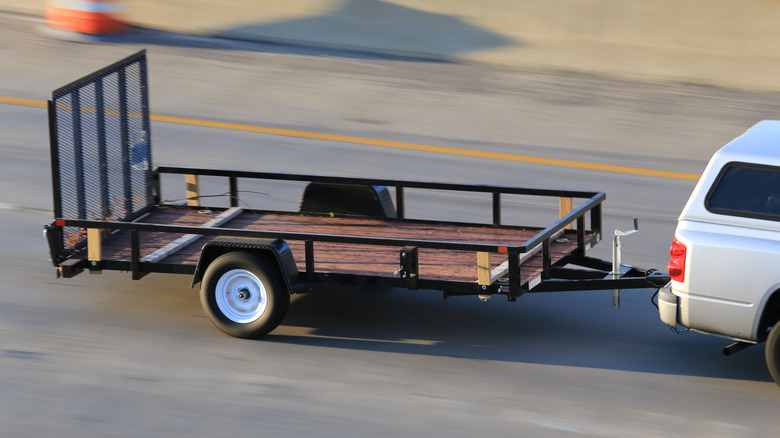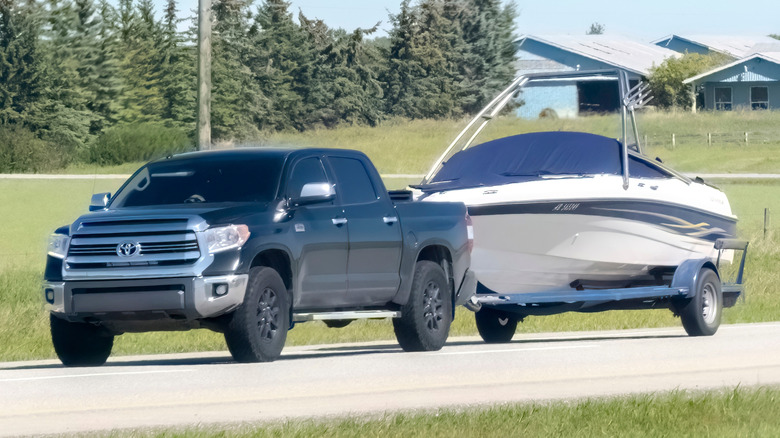Towing A Trailer In Florida? Know These License Plate Rules First
If you're new to the world of towing, it's worth brushing up on towing safety tips and tricks before you head out on the road. It's also worth checking that you have your trailer documentation in order, and that your trailer meets the road requirements of your state, so as to avoid any unwanted attention from local law enforcement. If you're a Florida resident, you'll need a license plate for your trailer, although whether or not you'll also need a title depends on the weight of the trailer. Any trailers weighing 1,999 pounds or less will not require a title, while any trailer weighing 2,000 pounds or more will need to be both registered and titled.
Trailer owners can purchase license plates from a county license plate agency, although the cost varies slightly depending upon the type of trailer you're looking to register. Since 2022, owners of trailers weighing less than 500 pounds and registering the trailer for private use (tax class 52) have had to pay a registration tax rate of $18.35. Camping trailers — which are defined as being "constructed with collapsible partial sidewalls which fold for towing by another vehicle and unfold at the campsite" by Florida state law — fall into tax class 62 and incur an annual tax rate of $25.10. Travel trailers up to 35 feet in length (tax class 77) pay $38.60, while travel trailers over 35 feet (tax class 78) pay a slightly lower rate of $36.60.
What other rules are there?
The allowable size of your license plate is also determined by the trailer's weight. Any trailer that weighs less than 2,000 pounds is eligible for a motorcycle-size license plate, but if it's over 2,000 pounds, you'll need a standard-size plate. Trailers over the 2,000-pound limit must also be already titled before a registration application is submitted, or the owner must submit an application for the title alongside their registration. However, even if you don't need a title because your trailer is under 2,000 pounds, you'll still need to prove that you're the legal owner of a trailer before you can register it and receive a license plate.
If you bought the trailer new, you'll need the purchase documents as proof of ownership. If you bought it used, you'll need to provide a bill of sale, which must include the previous owner's license plate number as well as a description of the trailer. Tow dollies are an exception to the rules above, since they do not require registration, and neither does the vehicle that they are towing.
Once you've got your license plate purchased and affixed to your trailer, it's best to make sure you keep it clean. That way, it will be clearly legible. It's also not advised to modify the plate in any way, since that might interfere with its readability, which is a traffic violation in Florida. Before you hit the road, be sure to properly load your trailer to keep it as stable as possible throughout your journey.

